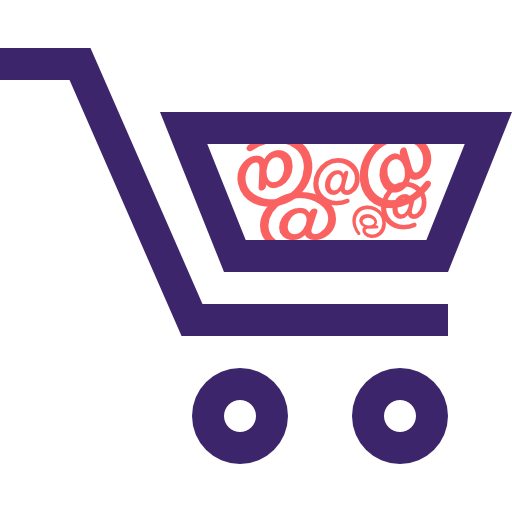Trust the list broker
Over the years I’ve worked with companies who admit to me that they’ve purchased data at one point or another. Let’s face it, as bad a practice as it is, people and companies still think they can succeed in email marketing with purchased lists.
As part of the cleanup process, I start to ask questions about the list. Who did you buy it from? How were the addressees collected? Are these addresses shared with others? What did the seller tell you about the list.
Clients are rarely able to tell me about where the addresses are collected or if they’re shared.
It’s amazing to me how many companies choose to outsource the creation of such a valuable asset. They don’t know anything about it, but it’s a huge asset and so important they won’t let go when it doesn’t work.
Some of it is the sunk cost fallacy. But I think in some cases my clients don’t really believe the person who sold them the list wasn’t truthful. They really believe there is value in the list, if they can only unlock it.
Companies selling lists don’t really have any incentive to spend time or money making sure they have permission or that the lists are good. That’s just expense to them and returns no value. The value is in the number of addresses they can sell, not in the number of responsive addresses.
How many companies buy a list and immediately take it to a list cleansing service? Why should they? Shouldn’t the company SELLING the list make sure they’re selling deliverable addresses? Shouldn’t the seller spend the money for verification?
The very fact that so many companies believe they need to clean a purchased list speaks to the horrible quality of purchased lists. And, yet, companies are addicted to the idea of purchasing lists. They trust that the addresses are collected in a permission based manner. They believe when sellers tell them the addresses are good and valid – even when they see that 10 or 20 or 30% of the list is cleaned off by the list services.
List sellers won’t do the cleaning because they know they’re not providing the product. It’s a con and it’s a swindle and yet marketers still think they’re getting something of value from list sellers. And they still discover purchased lists are horrible in terms of deliverability and performance.
 I hear this all the time. But, y’know what? It’s BS. Total BS.
I hear this all the time. But, y’know what? It’s BS. Total BS.



